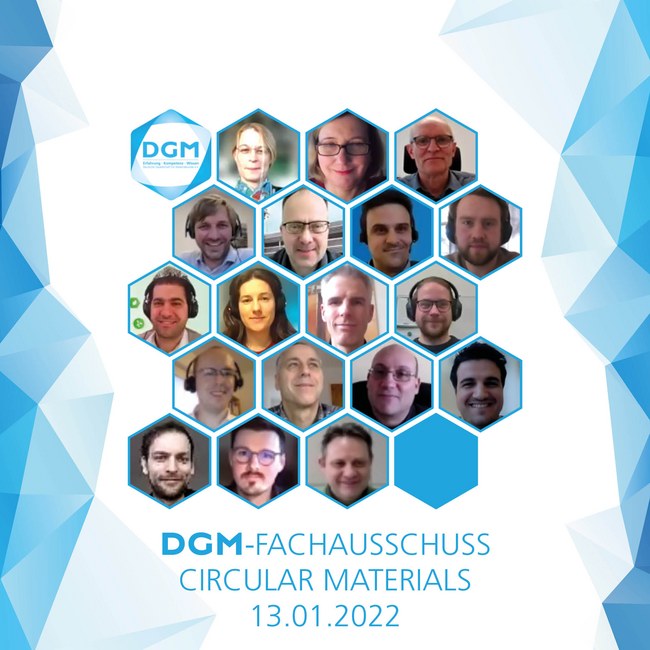
- Hans-Achim Kuhn, Wieland-Werke AG, presented in his lecture "Copper and copper alloys" detailed figures from all stages of the value chain, from mining and semi-finished product production at Wieland to recycling and circulation volumes. In addition, current challenges were mentioned: such as the significant reduction of permitted lead contents currently brought into play in discussions on REACH, the criticality of important alloy components (e.g. tin) and the security of supply of copper for renewable energy technologies.
- Alexandros Charitos, TU Berkakademie Freiberg, contributed a paper on "Fayalitic slag utilization for the production of glass fibers and pig iron: Use of carbon fibers as reducing agents." Fayalitic slags with significant iron content are produced, for example, in pyrometallurgical copper refining. In addition, large quantities of carbon fibers will become available in the next few years, e.g. from the dismantling of wind turbines. Suitable recycling options are being sought for this. Use as a reducing agent would be an interesting possibility. Details were presented on process development, upscaling and the possibility of recycling the products (pig iron, glass fibers).
- Moritz to Baben, GTT-Technologies, gave an overview of "Thermochemical Data for Circular Materials." While databases exist for most classical materials, basic information is lacking for combinations of different materials, such as those found in post comsumer scrap. It was presented how such information is estimated using quantum mechanical modeling and machine learning approaches. Two applications were then shown: a process model for lead refining that can be used, among other things, to estimate the behavior of technology elements from recycled materials, and a materials informatics approach used to search for alternative processes for lead dismutation.
- Finally, Jörg Schäfer, Aluminium Deutschland e.V., gave a presentation with the topic "Aluminium, the recycling material?". In addition to the CO2 footprint, he presented detailed figures on aluminum scrap from various segments (e.g. construction, automobiles) and addressed current developments for improved collection and sorting. Optimization potentials in the entire cycle were mentioned, from design (alloy window) to sorting. Again, it was emphasized that fundamentally positive ideas - such as reducing lead in products - can pose major challenges for the circular economy.
The slides for the presentations can be made available upon request.
Information on all technical committees can be found on the DGM homepage at https://dgm.de/de/netzwerk/fach-gemeinschaftsausschuesse.
If you are interested in actively participating in one of the committees, please send us a short mail to fachgremiendgm.de.
![[Translate to English:]](/fileadmin/_processed_/f/0/csm_logodgm-4_b2722eeace.png)
![[Translate to English:]](/fileadmin/user_upload/logodgm-4.png)